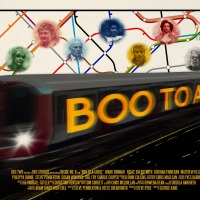 An anthology of connected single dramas explores the issue of climate change through the rest of the 21st Century.
An anthology of connected single dramas explores the issue of climate change through the rest of the 21st Century.
I did wonder why Apple+ had dropped the first three episodes of Extrapolations together. More often, there are just two released to hook in a new audience. Extrapolations isn’t a particularly easy watch to start with, either. Climate change is incredibly hard to dramatize. The problem – especially in the same week that the IPCC released its latest terrifying assessment of the parlous state of our planet’s environment – is that the awful, immediate reality is more than a lot of people can face. We’re used to dramas about the apocalypse, but they tend to involve deranged people in dirty anoraks and a lot of CGI. So how can programme makers tell the story when we’re all still in our cars and glad rags and jetting off for our annual holiday, and the disaster is happening right here, right now because of our own behaviour?
Consequently, many dramas on the subject end up feeling like worthy lectures, simultaneously handwringing and finger-wagging – made even worse when wagging fingers in question are those of extremely privileged Hollywood A-listers. To be fair, we need a lecture – we need a lot of lectures. A hefty slap around the collective face would be perfectly appropriate if it would make us sit up and actually do something. But the place for that is a documentary.
Unfortunately, the opening two episodes of Extrapolations fall into this exact trap. In the first, Kit Harrington plays a devious tech billionaire who cons the planet into moving the climate goalposts for his own financial advantage. So far, so absolutely plausible – but it’s a frustrating watch. I’ve never bought the whole ‘climate change is the fault of greedy capitalists’ argument. Of course, they don’t help, but Communist China anyone? Hardly climate angels, and the old Soviet Union wasn’t noted for its green credentials either. The other problem with this approach is it makes the counter argument look weak and stupid. Earnest protestors stand shouting on street corners as if that’s going to save a single polar bear. This narrative is predicated on a simplistic, schematic analysis based on the idea of ‘baddies’ and ‘goodies’, where the baddies are invincibly hell bent on doing the worst they possibly can for no particularly convincing reason, and the goodies are absolutely bloody useless.
In episode 2, we skip forward nine years and Sienna Miller is talking to the last humpback whale who speaks gnomically in the voice of Meryl Streep. I can’t stand this either. Preserving biodiversity cannot be predicated on cutesy, romanticised anthropomorphism. If we are going to rely on that then we are truly stuffed. It’s twee and sentimental. I found myself asking whether the story would work if the whale had the grating tones of the comedian Alan Carr, or Vicky Pollard from Little Britain – or if Meryl was voicing the kinds of Amazonian slug, or giant dung beetle that is just as important for holding our ecosystem together. Instead of widening our understanding of biodiversity, I contend that stories like this do exactly the opposite.
I was ready to give up in frustration, but they’d gone to the trouble of dropping three so I thought I’d better give the last one a go.
I’m glad I did. In 2047: The Fifth Question – where Ruby Rae Spiegel and Gregory Jacobs add their skills to the writing team – the series finally finds a way of using fictional extrapolation to good effect. Here, instead of lecturing us, the drama does what drama does best – it teaches how to ask the right questions.
Daveed Diggs plays Marshall Zucker, a young Florida Rabbi trying to save his synagogue from rising sea levels. In the great tradition of Jewish fatalism (a world view that underpins classic Jewish humour) Marshall is offered a series of narrative choices forcing him to ask whether the fate of the planet lies with God, or with us as ordinary human beings. The answer – as with the best Jewish jokes – is deceptively nuanced and profound.
It’s a brilliantly written script, full of contradictions and delicious ambivalence. Some might find it too oblique, but with David Schwimmer and Judd Hirsch along for the ride – plus a terrific performance from newcomer Neska Rose as Schwimmer’s doubting daughter – it makes for a highly entertaining and thought-provoking fifty minutes of television.
Verdict: If it hadn’t been for the third episode I might have passed on the rest of Extrapolations, but I’m guessing Apple+ knew the third outing was a bit special and I’m in for the duration now. The rest of the series won’t be perfect, and I fully expect to be shouting at the telly in annoyance, but at least it’s trying to find a way tell this story, and at its best, remembering that it’s not about ‘goodies’ and ‘baddies’ at all – it’s about us – all of us! – having the courage to take responsibility for our world and its future.
Episodes 1 and 2: 5/10
Episode 3: 9/10
Martin Jameson
www.ninjamarmoset.com











 An anthology of connected single dramas explores the issue of climate change through the rest of the 21st Century.
An anthology of connected single dramas explores the issue of climate change through the rest of the 21st Century.